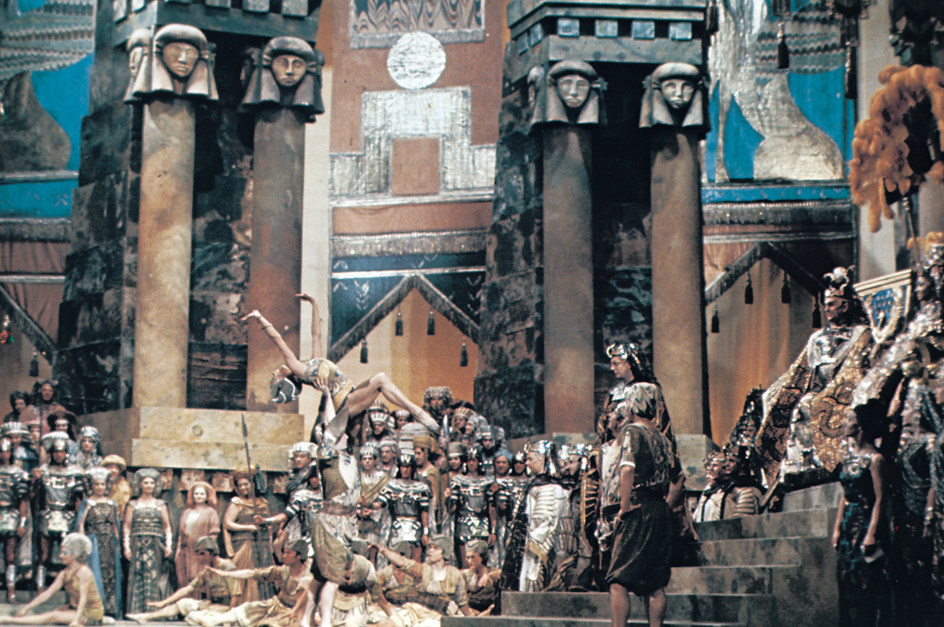Grand opera is a term used to describe opera in its most spectacular and theatrical form. As a musical term, it often refers to an opera that is purely musical—that is, one that has no spoken dialogue. In this way, it is distinct from comic opera, opera buffa, and Singspiel, all of which have spoken dialogue. See Opera.

A narrow, more specialized use of the term grand opera applies to a type of dramatized musical presentation that first became popular in the early 1800’s, especially in France. Composers of grand opera favored heroic episodes from history, in which they could use crowd scenes, spectacular stage effects, and complicated and elaborate vocal and instrumental music. Gioachino Rossini, an Italian-born composer, wrote a famous grand opera for performance in Paris in 1829. This piece, William Tell, was based on the realistic legend of the Swiss resistance leader fighting Austrian rule. Giacomo Meyerbeer, a German, became the leading composer of French grand opera with such works as Les Huguenots (1836) and Le Prophete (1849).
Loading the player...Opera: Grand opera
Later in the 1800’s, grand opera came into use as a general term for serious opera, especially opera on a large scale. Such pieces required singers with powerful voices who could make themselves heard above large orchestras. Giuseppe Verdi’s Aida (1871) and Richard Wagner’s Ring cycle (1869-1876) are examples of this form of opera. However, in the case of Wagner’s works, the term music drama is more appropriate.
Loading the player...The Ring of the Nibelung: The Twilight of the Gods
